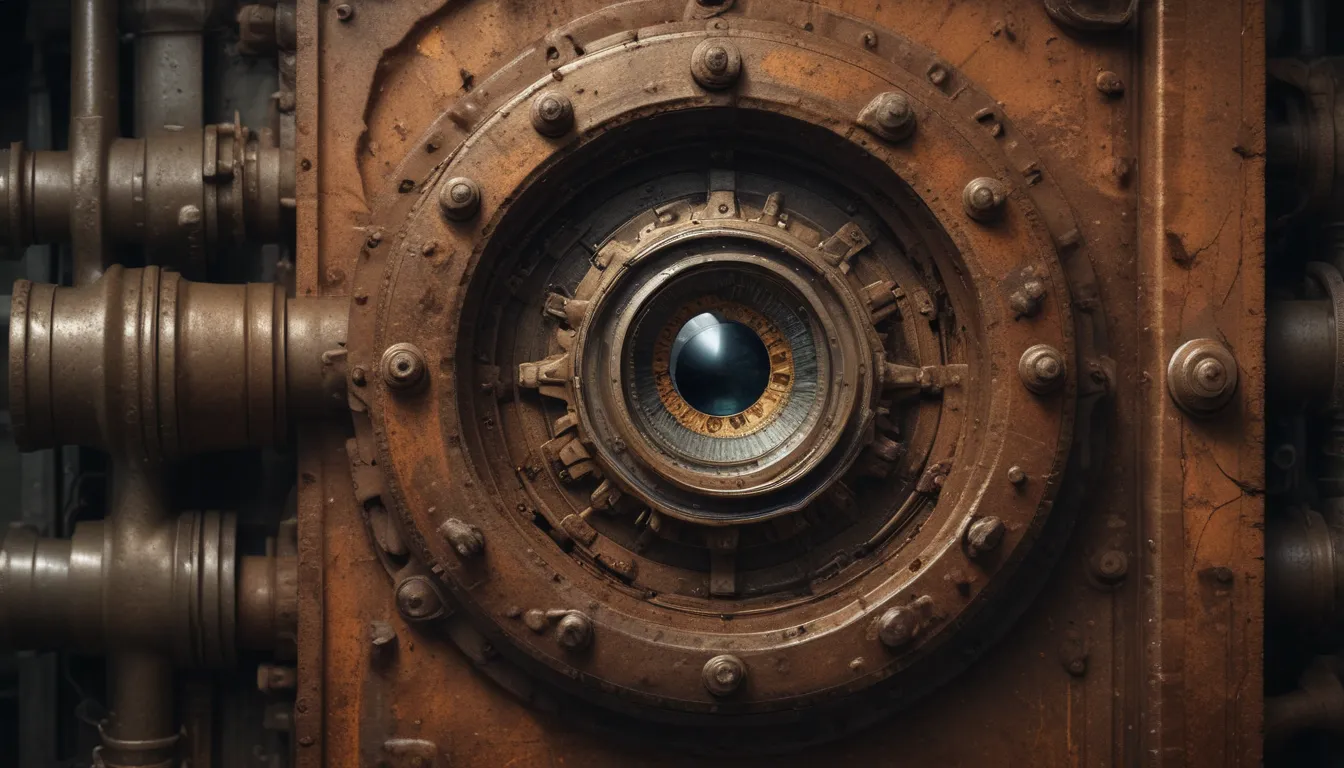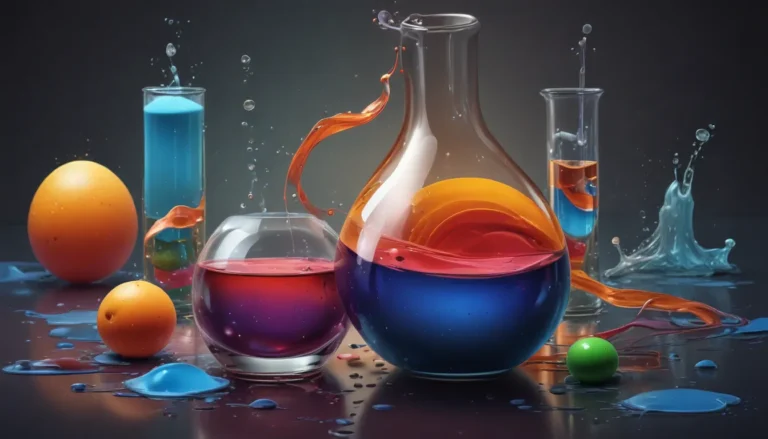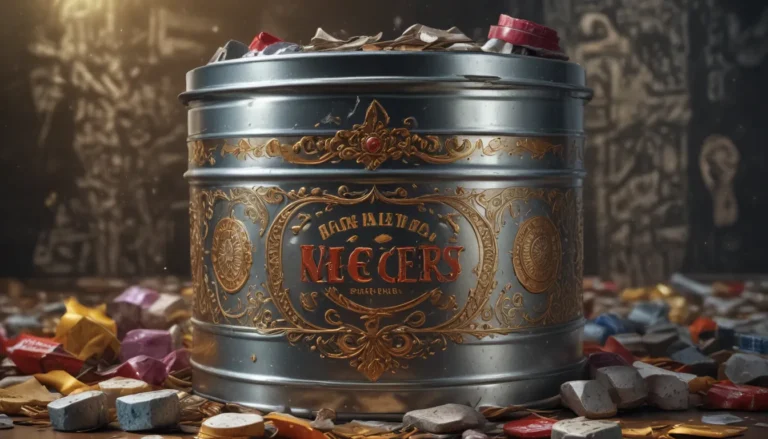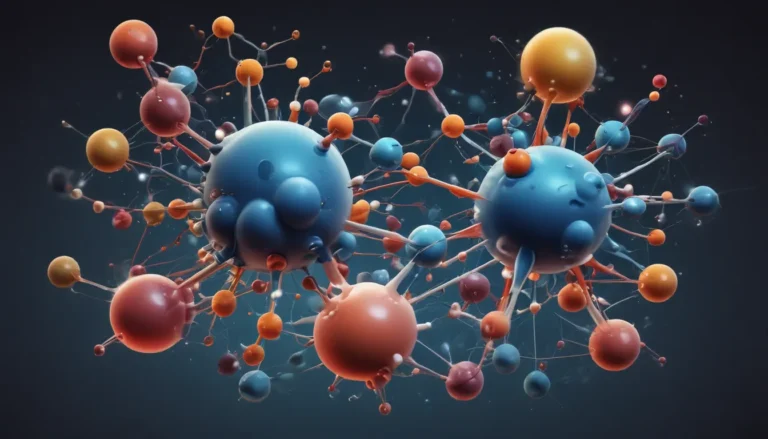A Note About Images: The images used in our articles are for illustration purposes only and may not exactly match the content. They are meant to engage readers, but the text should be relied upon for accurate information.
Corrosion is a natural process that impacts everything from metal structures to electronic devices, costing industries billions each year. Understanding and addressing corrosion is crucial for safety, financial stability, and environmental protection. In this article, we will unravel 17 astounding facts about corrosion that shed light on its pervasive nature and the importance of corrosion prevention and control. Let’s embark on a journey to explore the fascinating world of corrosion and discover valuable insights that can help us combat this destructive force effectively.
Dive Into the World of Corrosion
Corrosion primarily affects metals such as iron, steel, aluminum, and copper, leading to their weakening, corrosion, and eventual failure if left unchecked. This phenomenon costs industries and economies billions of dollars annually due to repairs, maintenance, and replacement of corroded equipment and infrastructure. Moreover, corrosion poses a major safety concern by compromising the structural integrity of buildings, bridges, and pipelines, risking the safety of people and the environment. It also impacts transportation systems, electronic devices, and everyday objects like cars, appliances, and jewelry. Despite its negative implications, corrosion studies have significantly contributed to enhancing our understanding of materials science and developing strategies to protect against this formidable adversary.
Understanding the Forms and Influences of Corrosion
Corrosion manifests in various forms, including rusting, pitting, galvanic corrosion, crevice corrosion, and stress corrosion cracking. Environmental factors such as humidity, temperature, moisture, air pollutants, and chemical exposure can accelerate the corrosion process. Applying protective coatings, using corrosion-resistant materials, implementing proper maintenance practices, and utilizing inhibitors are effective ways to prevent or slow down corrosion. Critical infrastructure, marine vessels, oil industry facilities, historical artifacts, aerospace components, and food processing equipment are all vulnerable to corrosion, emphasizing the widespread impact of this natural process.
Delving Deeper Into Corrosion Research and Challenges
Scientists and researchers study corrosion phenomena to develop new materials, coatings, and techniques for corrosion prevention and control. Despite advancements in corrosion prevention methods, combatting corrosion remains an ongoing battle that requires vigilance and continuous efforts. Factors like alloy corrosion, corrosion inhibitors, and pitting corrosion present unique challenges that industries must address to protect their assets effectively. Understanding the capabilities of corrosion inhibitors and the localized threat of pitting corrosion is crucial for maintaining the integrity of equipment and structures.
Taking Preventive Measures Against Corrosion
Corrosion prevention methods include the use of protective coatings like paints and galvanization, the application of corrosion inhibitors, regular maintenance, and proper material selection. While reversing corrosion once it has occurred is challenging, timely intervention and appropriate restoration methods can help slow down or halt further corrosion. The economic consequences of corrosion are substantial, with billions of dollars spent annually on repair, maintenance, and replacement expenses across various industries. Furthermore, corrosion releases metal ions and pollutants into the environment, posing risks to ecosystems, aquatic life, and human health.
FAQ: Your Guide to Corrosion Facts
Q: What causes corrosion?
A: Corrosion is primarily caused by electrochemical reactions between metals and their surrounding environments. Factors like moisture, temperature, pollutants, and pH levels can accelerate the corrosion process.
Q: How can corrosion be prevented?
A: Corrosion prevention methods include the use of protective coatings, corrosion inhibitors, regular maintenance, and proper material selection.
Q: Which metals are most prone to corrosion?
A: Metals like iron and steel are more susceptible to corrosion, while stainless steel and aluminum are more resistant.
Q: What are the economic consequences of corrosion?
A: Corrosion costs billions annually in repair, maintenance, and replacement expenses, impacting industries and economies worldwide.
Q: Can corrosion be reversed?
A: While reversing corrosion is challenging, timely intervention and appropriate restoration methods can help slow down further corrosion.
Q: How does corrosion impact the environment?
A: Corrosion releases metal ions and pollutants into the environment, posing risks to ecosystems, aquatic life, and human health.
Embracing a Corrosion-Free Future
By raising awareness about corrosion, implementing effective preventive measures, and leveraging research and technological advancements, we can strive towards a corrosion-free future. Understanding the mechanisms of corrosion, exploring innovative prevention methods, and using corrosion-resistant materials are essential steps in mitigating the effects of this natural process. Together, we can prolong the lifespan of structures, enhance safety standards, and reduce the environmental impact associated with corrosion.
Conclusion
Corrosion is a fascinating yet concerning phenomenon that affects various industries and materials in our daily lives. From infrastructure vulnerabilities to environmental risks, the impact of corrosion is far-reaching and significant. By delving into the realm of corrosion, we gain valuable insights into its forms, influences, challenges, and preventive measures. Through education, awareness, and collaborative efforts, we can combat corrosion effectively and pave the way towards a brighter, corrosion-free future.
Acknowledging Trustworthy Content
Our commitment to delivering trustworthy and engaging content is evident in the meticulous review process that ensures the accuracy and reliability of the facts we share. Each contribution from real users like you adds diverse insights and valuable information to our platform. Trust in our dedication to quality and authenticity as you explore, learn, and equip yourself with the knowledge needed to combat corrosion effectively in your own endeavors.






